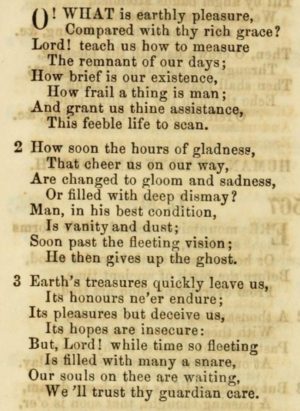Theme for this week: World Views
January 27, 2022 (Thursday)
Definition of Hedonism: “The doctrine that pleasure or happiness is the highest good.”
“People will be lovers of themselves, lovers of money, … not lovers of the good, … lovers of pleasure rather than lovers of God” (2 Timothy 3:2–4).
Some people may have never heard the word hedonism, but few have not experienced its impact. As a world view, hedonism is expressed well in the words of “the rich fool” in the Bible, who said, “Eat, drink and be merry for tomorrow you die.” Pleasure is good and pain is evil. Man’s ultimate purpose for living is to enjoy pleasure and avoid pain.
Hedonism is not new. Ancient Greeks and later the Romans indulged in orgies of drunkenness and sex. We might consider their beliefs and activities the first stage of hedonism. A second stage followed that we might call “refined hedonism.” They saw that the excesses of hedonism led to emptiness, disease and other unpleasant consequences. They therefore created a search for peace of mind. This they sought through an avoidance of pain and a moderate pursuit of pleasure.
Hedonism is a philosophy of feeling and pervades our culture. Some people say, “I feel we should do such and such.” Many people live by the slogan, “If it feels good, it must be good.”
God may call us to endure suffering. But that does not mean He calls us to seek suffering or to pursue pain or to flee from what is pleasant. There is no sin in enjoying the pleasant and in being free from pain. You and I know we have found pleasure by participating in the kingdom of God. We find joy in the service of Christ and our fellow man. We view Heaven as a place of eternal happiness where tears have been wiped away by God Himself.
Feelings are a very important part of our lives, but faith is not a feeling. Christians live first of all by faith and obedience.
I found a hymn that fits today’s blog but I could only find the lyrics. Perhaps the music will surface but for the present the words are all I have to offer. The author is Thomas Hastings (1784-1872). The hymn is probably 200 years old. The tune of “Come Thou Fount” almost fits. Try listening to it as you read the words.

(This blog was written after reading an article by Matthew Dowling.
My blog is edited from his.)
